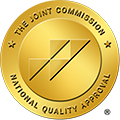Getting sober after prolonged alcohol use is a commendable but challenging endeavor. One of the first hurdles is withdrawal, a series of symptoms that can vary in intensity and duration. This post will explore the signs of alcohol withdrawal, what you can expect during the process, the dangers of detoxing at home, and how professional treatment makes the experience safer while potentially shortening the timeline.
Signs of Alcohol Withdrawal
Alcohol withdrawal symptoms can range from mild to severe, depending on factors like how long you relied on alcohol, your age, weight, and other factors. Common signs include:
- Anxiety and nervousness
- Insomnia
- Nausea and vomiting
- Tremors or shakes
- Headache
- Sweating
- Irritability and mood swings
- Increased heart rate and blood pressure
- Delirium tremens, hallucinations, and seizures
What to Expect During Alcohol Withdrawal
Withdrawal symptoms typically begin within hours to a few days after your last drink and can last for several weeks. The process takes place in stages.
- Stage 1: Symptoms start within six to 12 hours and can include anxiety, insomnia, nausea, and abdominal pain.
- Stage 2: Within 24 to 72 hours, your symptoms may escalate to include increased body temperature, irregular heart rate, and confusion.
- Stage 3: 72+ hours later, you may experience severe symptoms such as fever, seizures, and delirium tremens.
How Long Does Withdrawal Take?
The duration of alcohol withdrawal varies from one person to the next. While mild symptoms can resolve within a few days, moderate to severe symptoms may last weeks. Additionally, some people develop post-acute withdrawal syndrome, which can last for months or even years without proper treatment.
Some people assume that at-home detox is easier or more approachable, but it can be hazardous due to the potential severity of withdrawal symptoms. Without medical supervision, you risk dehydration, seizures, and DTs, which can be life-threatening. Moreover, the discomfort and distress of withdrawal symptoms can often lead to relapse without supportive care.
How Professional Treatment Can Help
Professional detox programs provide a structured and safe environment for managing withdrawal symptoms.
- Medical supervision: Continuous monitoring ensures your safety, with immediate interventions available for complications.
- Medication-assisted treatment: Non-addictive medications can stabilize you physically and psychologically, making the process more comfortable and manageable.
- Support and counseling: Our professional detox program offers counseling to help you cope with the emotional and mental challenges of withdrawal.
- Shortening the timeline: Though withdrawal can be unpredictable, professional treatment can make your symptoms less severe, potentially shortening the overall timeline.
Navigating the Path to Recovery
Alcohol withdrawal is a sign that your body and brain rely on drinking to cope with life’s difficulties. While detoxing is not easy, professional treatment offers the safest and most effective path forward. At Acworth Outpatient Detox, we support you with the medical care, counseling, and resources you need to get – and stay – sober. By choosing professional detox, you make withdrawal safer and build a foundation for recovery. Contact us today to learn more about detoxification on your terms.






